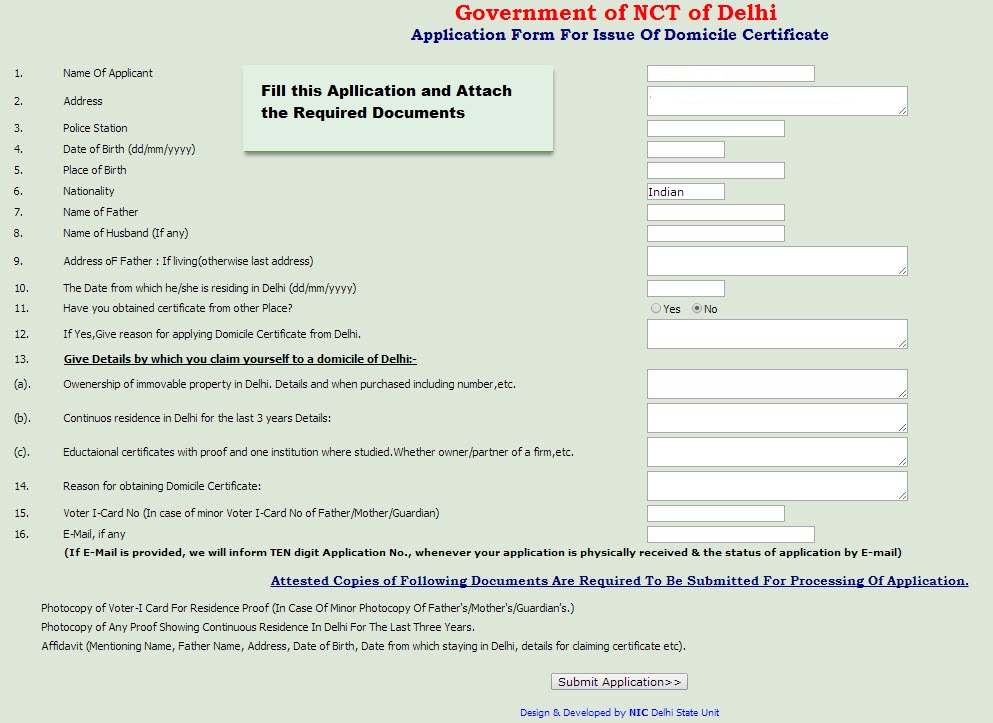Delhi Domicile Certificate
Residents of Delhi should obtain a domicile certificate Delhi to prove that they are permanent residents of that state. A Delhi domicile certificate helps residents of Delhi to get benefits under various state government services and programmes. The NCT government or the Revenue Department issues the Delhi domicile certificates. Purposes of Domicile Certificate Domicile Certificate is used to get local preference in many situations. It is required to avail resident based reservations which are made in educational institutes or government jobs, etc. It is also used for students to apply for scholarship schemes aimed at residents of the State. Domicile certificate may also be required by institutions giving loan as proof of place of residence. Domicile certificate eligibility in Delhi The applicant has been residing in Delhi for more than three years. The applicant owns a property in Delhi. Women who are not residents of Delhi but marry a person who lives in Delhi. Documents Required Affidavit as prescribed in Annexure-I of the domicile certificate form. Identity Proof (Aadhar card, Voter ID card, Ration Card, etc.) Resident Proof (Electricity bill, water bill, telephone bill, etc.) A copy of Birth Certificate. Proof of the applicant owning a land. Passport size colour photograph How to apply for a domicile certificate in Delhi? Step 1: Visit the official Delhi Government e-District website. Step 2: Click on the ‘Apply for Certificates Online’ option available on the right-hand side of the homepage. Step 3: Click the ‘Register’ option if you have not registered on the e-District website. Step 4: Select the document type as ‘Aadhaar card’, enter your Aadhaar number and click the ‘Click Here’ button. Step 5: Enter the required details and click the ‘Register’ button. Step 6: Click the ‘Apply Online’ tab and select the ‘Apply for Services’ option. Step 7: Click the ‘Apply’ button against the ‘Issuance of Domicile Certificate’ from the displayed list. Step 8: Fill in the application, upload the required documents and submit the form. How to get a domicile certificate offline in Delhi? Eligible applicants should visit the office of the Deputy Commissioner, Sub-District Magistrate, Common Service Center (CSC), or Sub-Divisional Magistrate and get the domicile certificate application form. They should fill out the form, attach the required documents, and submit it with the applicable fees. The applicants will get the application number. FAQs Is a domicile certificate compulsory in Delhi? To take admission to educational institutions that have seats reserved for Delhi residents. To apply for jobs giving preference to local candidates, i.e. Delhi residents. To apply for loans from institutions requiring a domicile certificate as proof of place of residence. To apply for state scholarship schemes that require a domicile certificate as residence proof. To apply for resident-based reservations in government services. To obtain benefits under the Delhi state government schemes. Domicile certificate validity in Delhi The validity of a Delhi domicile certificate is lifelong.
Delhi Domicile Certificate Read More »



